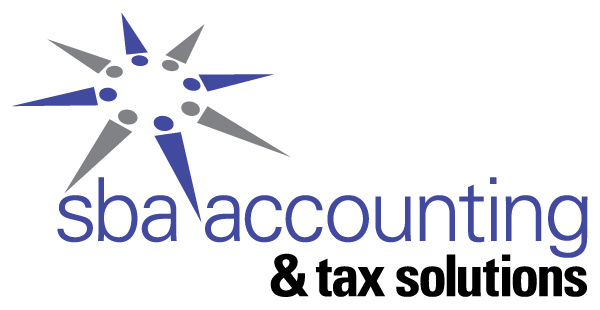When it comes to tax returns, it’s crucial to strike a balance between keeping records for a reasonable period and avoiding unnecessary clutter. The key is to retain tax-related documents for as long as they serve a purpose, such as supporting your return or meeting legal requirements.
Find out how long you should keep your tax returns here.
How Long Do You Have to Keep Tax Records?
The IRS recommends keeping your tax returns and supporting documents for at least three years after the date you filed or the due date of your tax return, whichever is later. This is because the IRS has three years from the date you filed your return to audit you.
However, exceptions, such as underreported income or claiming a loss for bad debt or worthless securities, may require longer retention periods. Check with the IRS and your state tax authorities for specific guidelines.
What Is a Tax Audit?
A tax audit formally examines your tax return by the Internal Revenue Service (IRS) or state tax authority. The IRS conducts audits to verify that you have accurately reported your income and deductions and paid the correct amount of tax.
There are a few different types of tax audits, including:
- Correspondence audits: These are the most common type of audits. The IRS will send you a letter asking you to provide documentation to support certain items on your tax return.
- Office audits: Office audits are conducted at an IRS office, and the auditor will review your tax return and supporting documents in person.
- Field audits: Field audits are the most in-depth type of audit. An IRS auditor will visit your home or business to review your records.
What to Expect When You’re Selected for an Audit
If you are selected for an audit, you should cooperate with the IRS auditor. That means providing the requested documentation and answering the auditor’s questions truthfully. You should also be aware of your rights during the audit.
You have the right to:
- Be represented by a tax professional.
- Request a copy of your tax return and any supporting documents.
- Ask questions about the audit process.
- Refuse to answer questions that you believe are irrelevant or privileged.
If you’re audited, and the IRS finds you made a mistake, you may have to pay additional tax, interest, and penalties. However, you might be able to avoid this if you prove you made an honest mistake.
When Should I Keep My Tax Records for Longer Than 7 Years?
You should keep your tax records for seven years if you file a claim for a loss from worthless securities or bad debt deduction. It’s also recommended you keep records for six years if you don’t report the income you should report, and it’s more than 25% of the gross income shown on your return.
Also, if you’re self-employed or own a business, you may need to keep your tax records for over three years. This is because the IRS has six years from the date you filed your return to audit you if you fail to report all your income.
Here’s a table summarizing how long you should keep your tax records in different situations:
| Situation | Length of Time to Keep Records |
| Normal Return | Three years |
| Claim for loss from worthless securities or bad debt deduction | Seven years |
| Failure to report income | Six years |
| Self-employed or own a business | Six years |
| Fraudulent return | Indefinitely |
Keep in mind — these are just general guidelines! You may need to keep your tax records for longer than the recommended period if you are involved in a legal dispute or if you may be audited.
What if I Don’t Keep My Tax Records?
If you don’t keep your tax records, you may have difficulty proving your income and deductions if the IRS ever audits you. The IRS has a statute of limitations for assessing taxes, which means that they can only evaluate taxes for a certain number of years after you file your return. However, if you don’t have your tax returns, the IRS may be able to extend the statute of limitations.
In addition, keep your tax returns to claim certain tax credits or deductions. For example, the Earned Income Tax Credit (EITC) is a refundable tax credit that can provide a significant financial benefit to low- and moderate-income taxpayers. However, you must keep your tax returns to claim the EITC.
Finally, you may need help getting a loan or mortgage. Lenders often ask for copies of tax returns to verify your income and financial situation. If you don’t have your tax returns, you may have a hard time getting approved for a loan or mortgage.
To avoid these problems, keep your tax returns for at least three years after you file them. You should also keep your tax returns in a safe and accessible place. If you lose your tax returns, you can request copies from the IRS.
How Do You Store Tax Records?
There are a few different ways to store tax records. Some of the most common methods include:
- Physical storage: You can store your records in a fireproof safe, a filing cabinet, or even a shoebox. That said, physical storage can be a bit cumbersome, and it can be difficult to keep track of your records if they are not organized properly.
- Digital storage: Scan your records and store them on a computer, external hard drive, or cloud storage service. Digital storage is more convenient than physical storage, and it is easier to keep your records organized. However, make sure that your digital records are backed up in case of data loss!
- A combination of physical and digital storage: This is a hybrid approach that combines the best of both worlds. You can store your most important tax records in physical form, and you can keep less important records in digital form. This can help you save space and make it easier to find the records you need.
No matter which method you choose, it is important to store your tax records in a safe and secure place. You should also label your records clearly and concisely so that you can easily find them when you need them.
Contact Our Experienced Tax and Accounting Professionals Today!
If you have any questions about filing or storing your tax returns or need help, contact our experienced accountants today. We can help you understand your options and ensure that you file and store your taxes accurately while keeping more of your money and avoiding issues with the IRS.
Call 559-369-7691 to ensure you and your taxes are safe and correct!


